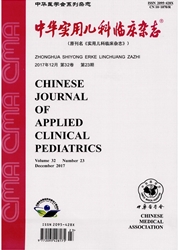

 中文摘要:
中文摘要:
随着胎儿医学影像学及微创介入治疗技术的发展,严重心血管畸形的胎儿期干预已在全球少数几个医学中心实施。该技术通过缓解或改变异常血流动力学状态,从而可能促进发育不良的心脏再次发育,形成双心室循环,重塑流出道梗阻的肺血管床,以期改善患儿的早期及远期预后。但是,由于技术本身的局限性及相关风险性,同时涉及胎儿、母亲/家长和医师/医疗机构多方面的利益,从一开始就受到伦理学的质疑。随着研究逐步深入,技术相关风险正被有效控制,如何平衡三方利益及为胎儿形成最佳的诊疗决策成为伦理学所面临的严峻挑战。
 英文摘要:
英文摘要:
With the development of fetal medical imaging and minimal invasive interventional therapy, fetal cardiac intervention has taken into clinical practice in few medical centers. Fetal cardiac therapy may alter the abnormal hemodynamies of fetal circulation, which can lead to recruit hypoplastic ventricle, to create a two-ventricle circulation after birth, to remodel the fetal pulmonary vascular bed whose outlet is obstructed, and to provide a better prognosis for the suffered children. However, according to the limitations and risks of this cutting edge technique, as well as the dilemmas to balance the interests among fetus, mother/parents and doctor/medical institution, ethical challenges never fade away ever since the first beginning in this rising field. Following the encouraging research results published, the risk of the technique has been partly taken control. So in current status, how to balance the interests among three participants and to establish optimal routine clinical practice are the most challenging problems.
 同期刊论文项目
同期刊论文项目
 同项目期刊论文
同项目期刊论文
 期刊信息
期刊信息
